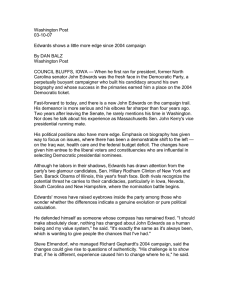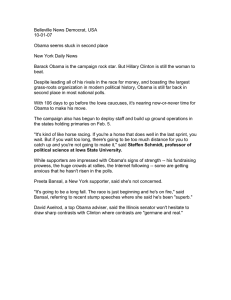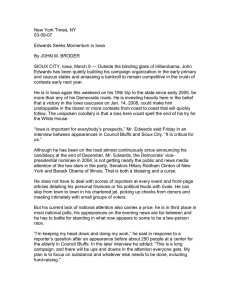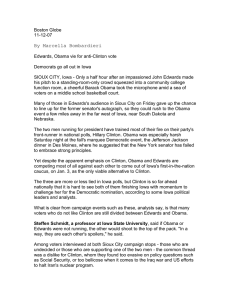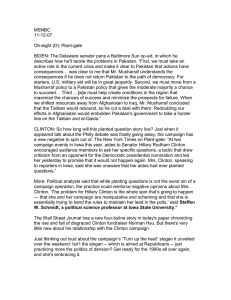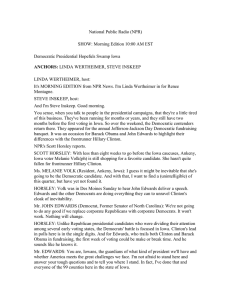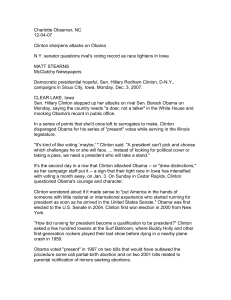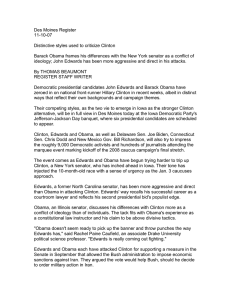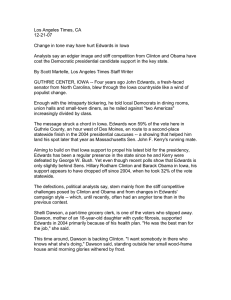Campaigns and Elections 11-05-07 Edwards, Obama Split Big Change Vote
advertisement
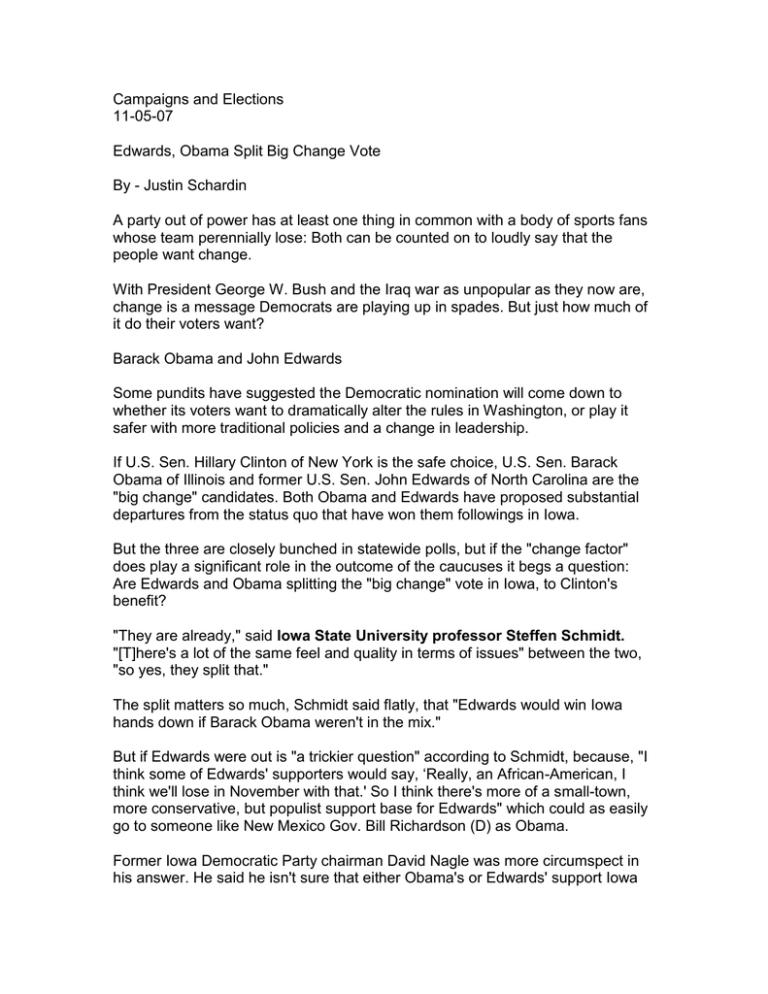
Campaigns and Elections 11-05-07 Edwards, Obama Split Big Change Vote By - Justin Schardin A party out of power has at least one thing in common with a body of sports fans whose team perennially lose: Both can be counted on to loudly say that the people want change. With President George W. Bush and the Iraq war as unpopular as they now are, change is a message Democrats are playing up in spades. But just how much of it do their voters want? Barack Obama and John Edwards Some pundits have suggested the Democratic nomination will come down to whether its voters want to dramatically alter the rules in Washington, or play it safer with more traditional policies and a change in leadership. If U.S. Sen. Hillary Clinton of New York is the safe choice, U.S. Sen. Barack Obama of Illinois and former U.S. Sen. John Edwards of North Carolina are the "big change" candidates. Both Obama and Edwards have proposed substantial departures from the status quo that have won them followings in Iowa. But the three are closely bunched in statewide polls, but if the "change factor" does play a significant role in the outcome of the caucuses it begs a question: Are Edwards and Obama splitting the "big change" vote in Iowa, to Clinton's benefit? "They are already," said Iowa State University professor Steffen Schmidt. "[T]here's a lot of the same feel and quality in terms of issues" between the two, "so yes, they split that." The split matters so much, Schmidt said flatly, that "Edwards would win Iowa hands down if Barack Obama weren't in the mix." But if Edwards were out is "a trickier question" according to Schmidt, because, "I think some of Edwards' supporters would say, ‘Really, an African-American, I think we'll lose in November with that.' So I think there's more of a small-town, more conservative, but populist support base for Edwards" which could as easily go to someone like New Mexico Gov. Bill Richardson (D) as Obama. Former Iowa Democratic Party chairman David Nagle was more circumspect in his answer. He said he isn't sure that either Obama's or Edwards' support Iowa would necessarily go to the other man, "but I don't think Clinton's numbers would increase." "[H]er base is rock solid, but it doesn't seem to be expanding," Nagle continued. "With all the ammunition Sen. Clinton has behind her, you could argue she should be doing better" in Iowa. Right now, national numbers strongly favor Clinton, even if they don't in the state. Schmidt said that has a lot to do with the voters' tolerance for change. "In the middle of a lot of uncertainty," he said, his tongue halfway in his cheek, "people actually, surprisingly don't want more uncertainty." He continued that Clinton's positions on gay marriage, the military, and others are fairly centrist, and liberals are splitting their support elsewhere. "People think those issues for her are much closer to how the general public is going to vote in November, and I think they're right," he added. In one sense the debate is academic, since neither Edwards nor Obama is likely to drop out of the race before the caucuses. But if either stumbles badly in the early primary states and then decides to leave the race, the dynamic could change along these lines. On the Republican side, many ask whether social conservatives will unite behind one candidate to oppose more moderate former New York mayor Rudy Giuliani (R). Is it possible that Democrats interested in dramatic change will coalesce around one of their own to oppose Clinton? There is, to date, no indication that will happen, but should Clinton win in Iowa, pundits sifting through the aftermath are likely to speculate on it as a fascinating "what if" scenario.
